 To enhance service speed and avoid tariff delays, we've opened a US warehouse. All US orders ship directly from our US facility.
To enhance service speed and avoid tariff delays, we've opened a US warehouse. All US orders ship directly from our US facility.
| Cat. No. | Product Name | Field of Application | Chemical Structure |
|---|---|---|---|
| DC60500 | NVS-STG2 Featured |
NVS-STG2 is a molecular glue that targets STING and activates STING-mediated immune signaling. It promotes higher-order oligomerization of human STING by binding to pockets between adjacent STING dimer transmembrane domains, effectively functioning as a molecular glue. NVS-STG2 enhances the activity of cGAMP by inducing the formation of more abundant and larger oligomers. It demonstrates significant antitumor activity in animal models.
More description
|

|
| DC7312 | Tasisulam(LY573636) Featured |
Tasisulam is an anticancer agent that triggers apoptosis through the intrinsic pathway, leading to cytochrome c release and caspase-dependent cell death. It also inhibits mitotic progression and promotes vascular normalization.
More description
|

|
| DC29000 | (R)-CR8 trihydrochloride Featured |
(R)-CR8 trihydrochloride (CR8 trihydrochloride), a second-generation derivative of Roscovitine, is a highly potent inhibitor of CDK1/2/5/7/9. It exhibits inhibitory activity against CDK1/cyclin B (IC50=0.09 μM), CDK2/cyclin A (0.072 μM), CDK2/cyclin E (0.041 μM), CDK5/p25 (0.11 μM), CDK7/cyclin H (1.1 μM), CDK9/cyclin T (0.18 μM), and CK1δ/ε (0.4 μM). (R)-CR8 trihydrochloride induces apoptosis and demonstrates neuroprotective properties.
More description
|
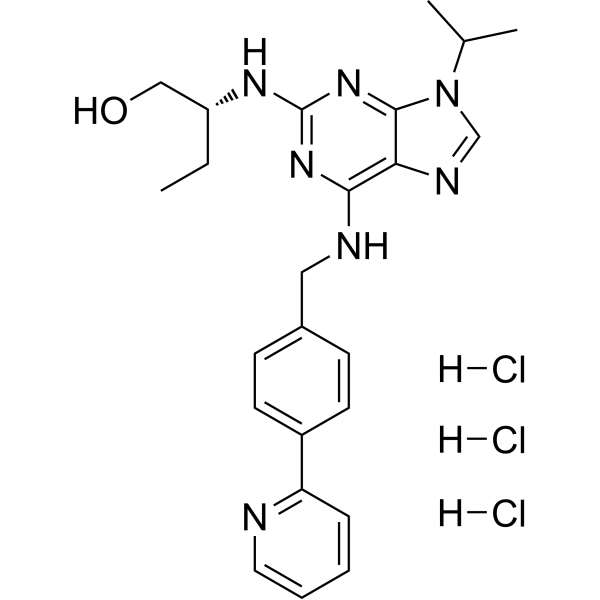
|
| DC20253 | NRX-252262 Featured |
NRX-252262 is a powerful enhancer of the interaction between β-Catenin and its cognate E3 ligase, SCFβ-TrCP. It effectively induces the degradation of mutant β-catenin, demonstrating an EC50 of 3.8 nM.
More description
|

|
| DC67327 | Lenalidomide hemihydrate Featured |
Lenalidomide hemihydrate (CC-5013 hemihydrate), a derivative of thalidomide, functions as a molecular glue and is an orally active immunomodulator. It acts as a ligand for the ubiquitin E3 ligase cereblon (CRBN), facilitating the selective ubiquitination and degradation of the lymphoid transcription factors IKZF1 and IKZF3 through the CRBN-CRL4 ubiquitin ligase complex. Lenalidomide hemihydrate specifically inhibits the growth of mature B-cell lymphomas, including multiple myeloma, and promotes the release of IL-2 from T cells.
More description
|
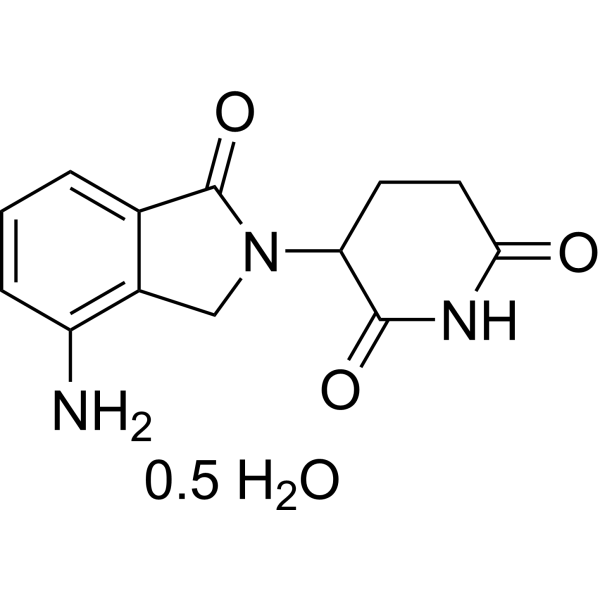
|
| DCC5425 | Voclosporin Featured |
Voclosporin (ISAtx-247) is an inhibitor of calcineurin (PP2B), also known as CN, exhibiting its activity through targeted suppression of this enzyme.
More description
|
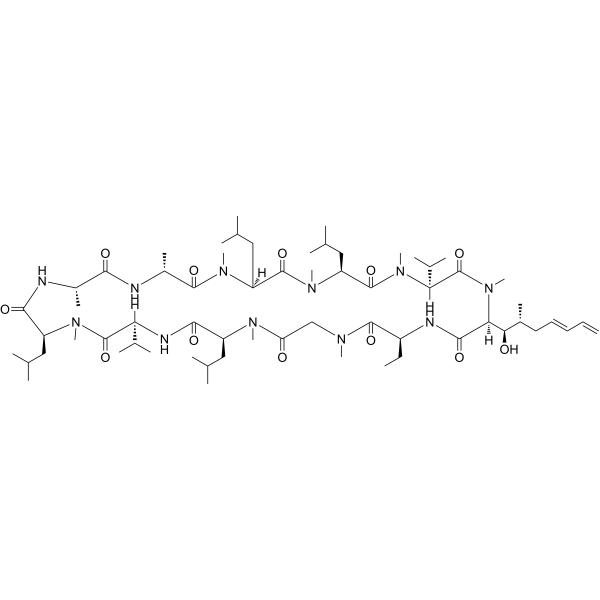
|
| DC47521 | ALV2 Featured |
ALV2 is a potent and selective degrader of Helios, a zinc-finger transcription factor crucial for maintaining a stable regulatory T-cell (Treg) phenotype in inflammatory tumor microenvironments. ALV2 binds to CRBN with an IC50 of 0.57 μM, demonstrating its specificity and efficacy.
More description
|

|
| DC10146 | Avadomide(CC 122) Featured |
Avadomide is an orally bioavailable cereblon modulator that regulates cereblon E3 ligase activity, inhibits the NF-κB pathway, and induces cell cycle arrest at the G1 phase, leading to apoptosis in pancreatic ductal adenocarcinoma (PDAC) cells. It demonstrates significant antitumor and immunomodulatory effects.
More description
|

|
| DC47989 | FPFT-2216 Featured |
FPFT-2216 is a "molecular glue" compound that induces the degradation of phosphodiesterase 6D (PDE6D), zinc finger transcription factors Ikaros (IKZF1) and Aiolos (IKZF3), and casein kinase 1α (CK1α). It holds potential for research in cancer and inflammatory diseases.
More description
|
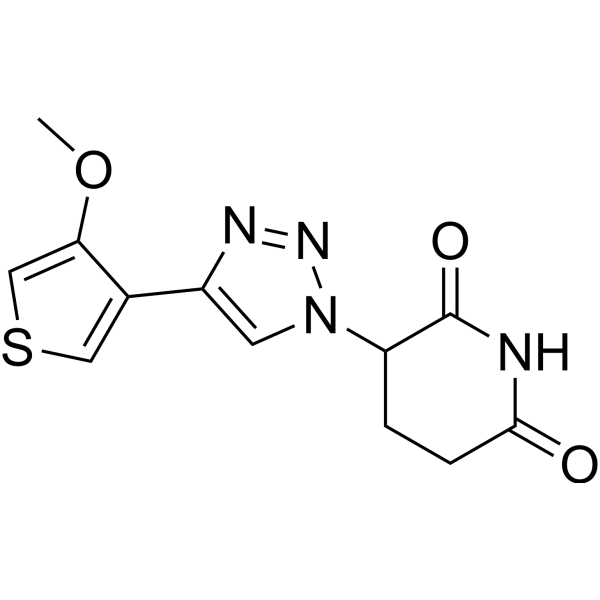
|
| DC72103 | Golcadomide(CC-99282) Featured |
Golcadomide (CC-99282) is a highly potent and orally bioavailable CRBN E3 ligase modulator (CELMoD). It interacts with the CRL4 CRBN E3 ubiquitin ligase substrate receptor CRBN, facilitating the recruitment and ubiquitin-mediated proteasomal degradation of the transcription factors Ikaros and Aiolos. Golcadomide holds significant promise for research in cancer-related areas, including chronic lymphocytic leukemia (CLL) and non-Hodgkin lymphoma (NHL).
More description
|
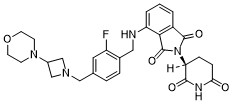
|
| DC50245 | CFT7455 Featured |
CFT7455 is an orally bioavailable degrader of the zinc finger transcription factors Ikaros (IKZF1) and Aiolos (IKZF3). It functions as an anticancer agent by binding with high affinity to the cereblon E3 ligase, exhibiting a Kd of 0.9 nM (WO2022032132A1; Compound 1).
More description
|
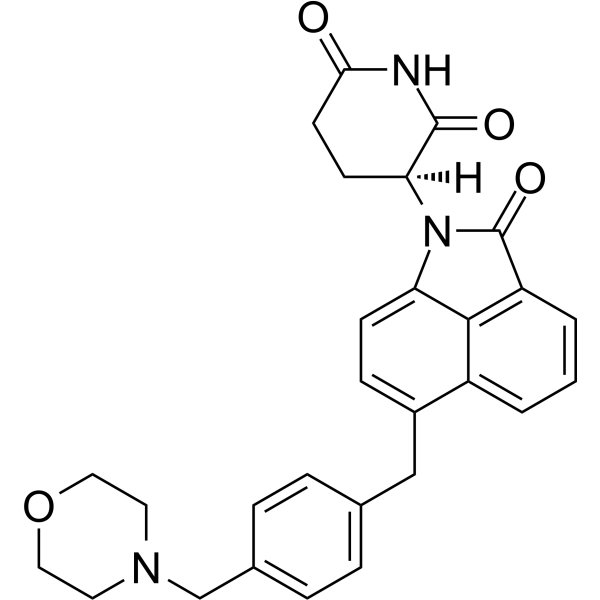
|
| DC47881 | TMX-4116 Featured |
TMX-4116 is a potent degrader of casein kinase 1α (CK1α), demonstrating strong degradation activity with DC50 values below 200 nM in MOLT4, Jurkat, and MM.1S cell lines. It holds significant potential for research applications in multiple myeloma.
More description
|
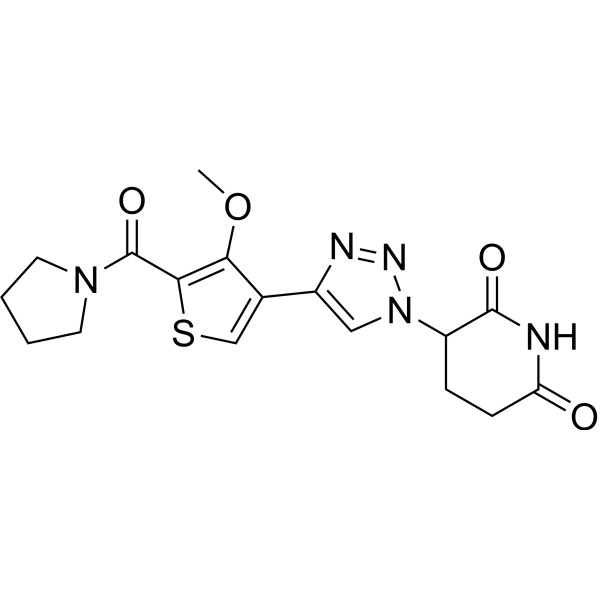
|
| DC49931 | NVP-DKY709 Featured |
NVP-DKY709 is a powerful IKZF2 inhibitor with significant potential for cancer therapy.
More description
|

|
| DC20779 | BI-3802 Featured |
BI-3802 (BI3802) is a highly potent and effective BCL6 degrader that disrupts the interaction between the BTB/POZ domain of BCL6 and its co-repressors in vitro, achieving an IC50 of less than 3 nM.
More description
|
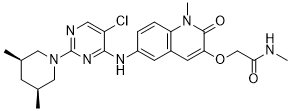
|
| DC10784 | E7820 Featured |
E7820 is an angiogenesis inhibitor that exerts its effects by targeting integrin α2, a cell adhesion molecule prominently expressed on endothelial cells.
More description
|
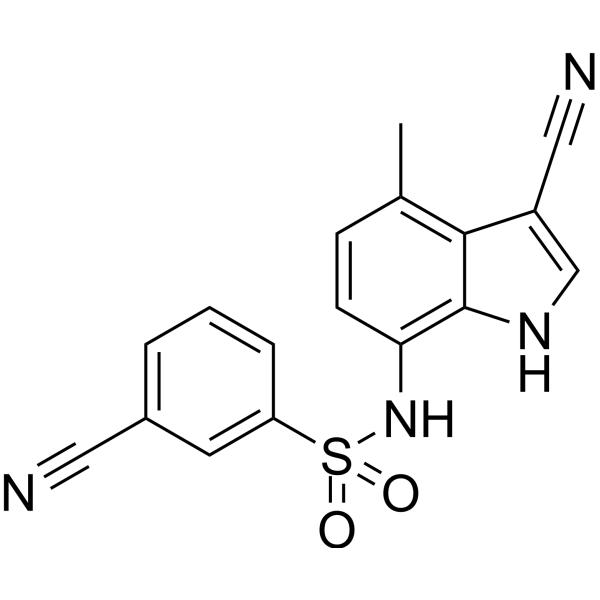
|
| DC55050 | SJ6986 Featured |
SJ6986 is a highly potent, selective, and orally bioavailable degrader of GSPT1/2, with a DC50 of 2.1 nM. It exhibits strong antiproliferative effects in MV4-11 and MHH-CALL-4 cell lines, showing IC50 values of 1.5 nM and 0.4 nM, respectively.
More description
|

|
| DC60572 | NST-628 Featured |
NST-628 is a brain-penetrant molecular glue targeting the MAPK pathway, effectively inhibiting RAF phosphorylation and MEK activation. By binding to RAF, it disrupts the formation of BRAF-CRAF and BRAF-ARAF heterodimers, thereby blocking the RAS-MAPK signaling cascade. NST-628 exhibits potent anti-tumor activity in RAS- and RAF-driven cancers, demonstrating significant efficacy in mutant KRAS, NRAS, BRAF class II/III, and NF1-mutant tumor models.
More description
|
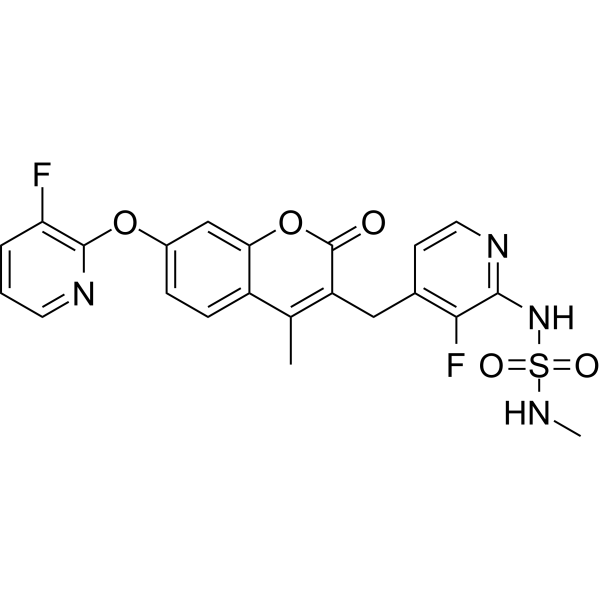
|
| DC39084 | Mezigdomide(CC-92480) Featured |
Mezigdomide is a cereblon E3 ubiquitin ligase modulator with immunomodulatory and antineoplastic properties. By specifically binding to cereblon (CRBN), it alters the activity of the ubiquitin E3 ligase complex, leading to the ubiquitination and subsequent proteasome-mediated degradation of specific transcription factors, including those that act as transcriptional repressors in T cells. This process modulates immune system activity, such as T lymphocyte activation, and suppresses the function of proteins critical for the proliferation of certain cancer cells.
More description
|
.jpg)
|
| DC10174 | Iberdomide Featured |
Iberdomide (CC-220) is a cereblon modulator currently undergoing clinical development for the treatment of systemic lupus erythematosus. It demonstrates potent activity with an IC50 of 60 nM in a TR-FRET cereblon binding assay.
More description
|

|
| DC20984 | Indisulam Featured |
Indisulam (E7070) is a potent sulfonamide-based cell-cycle inhibitor with notable antiproliferative effects. It induces a reduction in the S phase fraction while promoting G1 and/or G2 phase accumulation in various cancer cell lines.
More description
|

|
| DC67326 | LYG-409 Featured |
LYG-409 is an orally active degrader of GSPT1, demonstrating significant efficacy against acute myeloid leukemia and prostate cancer in vivo, with tumor growth inhibition (TGI) rates of 94.34% and 104.49%, respectively. In vitro, LYG-409 effectively inhibits KG-1 cells by degrading GSPT1, exhibiting an IC50 of 9.50 nM and a DC50 of 7.87 nM.
More description
|
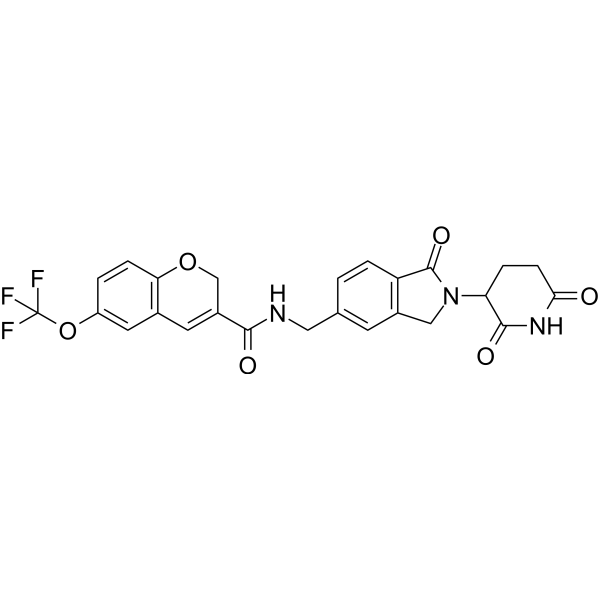
|
| DC67325 | (S)-ACE-OH Featured |
(S)-ACE-OH is a molecular glue exhibiting anticancer properties by facilitating the degradation of nucleoporins and disrupting nucleocytoplasmic transport. It achieves this by inducing an interaction between the E3 ubiquitin ligase TRIM21 and the nucleoporin NUP98.
More description
|
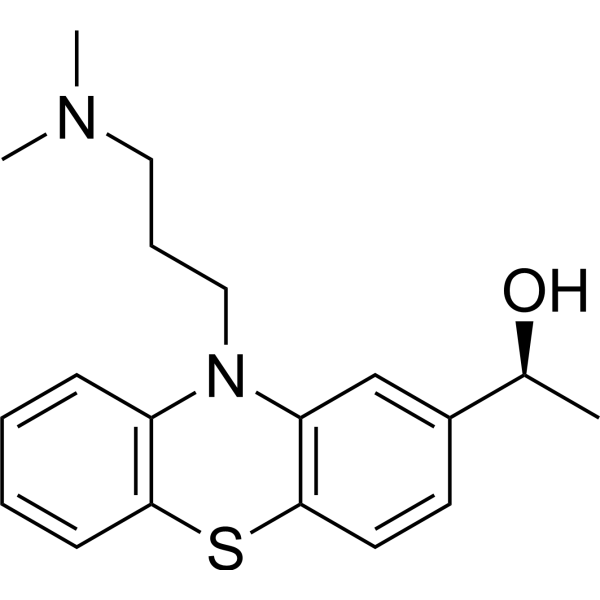
|
| DC9009 | Thalidomide Featured |
Thalidomide has the ability to directly suppress angiogenesis triggered by bFGF or VEGF in vivo.
More description
|
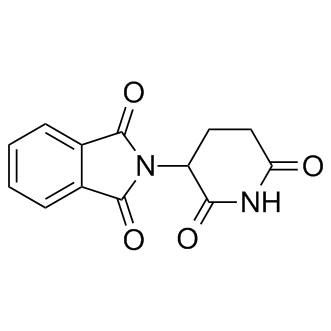
|
| DC6311 | Pomalidomide Featured |
Pomalidomide, a third-generation immunomodulatory compound, functions as a molecular glue by binding to the E3 ligase cereblon, leading to the targeted degradation of critical Ikaros transcription factors.
More description
|

|
| DCAPI1502 | Lenalidomide Featured |
Lenalidomide, a derivative of thalidomide, is recognized for its ability to inhibit TNF-α secretion and exhibit significant immunomodulatory effects.
More description
|
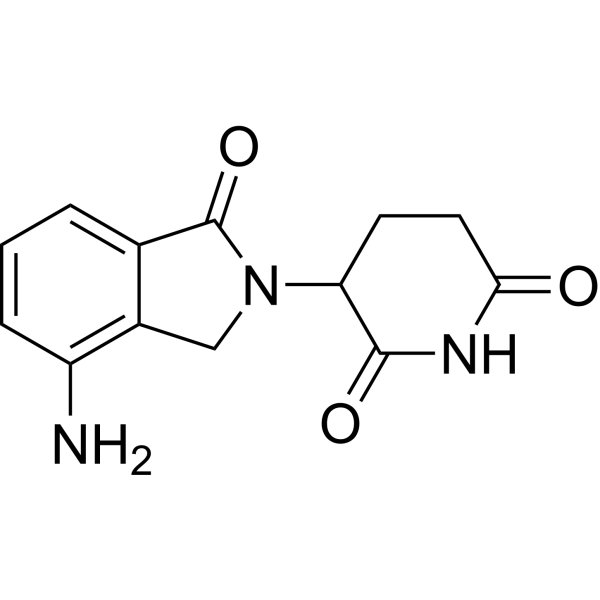
|